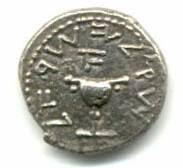From Bloomberg:
U.S. banking regulators are exploring whether they can exempt sovereign debt from the Dodd-Frank ban on proprietary trading after foreign governments complained that the rule could raise borrowing costs and impede the flow of capital, a person familiar with the talks said.
Five regulatory agencies are taking public comments on a proposed version of the so-called Volcker rule, which was included in the 2010 financial regulatory overhaul to ban deposit-taking banks from trading with their own money.
While foreign government bonds would fall under the rule as proposed, U.S. government debt would be exempt. Officials from Canada, Japan, and the United Kingdom have sent letters to the Treasury Department and regulators saying the measure would harm their ability to raise money
. . . . .
Granting an exemption may have to overcome skepticism in Congress in the midst of the European debt crisis and the probe of MF Global Holdings Ltd (MFGLQ)., which collapsed after making a $6.3 billion bet on European government bonds.
The Volcker Rule is designed (not perfectly mind you but still) to restrict United States banks from making certain kinds of speculative investments that do not benefit their customers and to prevent banks from engaging in high-risk speculation creating an unacceptable level of systemic risk.
Now regulators are strongly considering exempting what has been shown to be quite shaky sovereign debt from the rule and thus open US Banks to some very real system-wide risk.
What could possibly go wrong?

1 comment:
Perhaps they can name it the "Alfred E. Newman Exemption".
Post a Comment